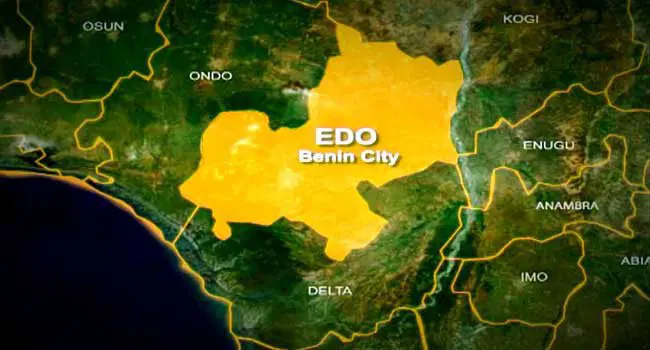The aftermath of the recent Edo State gubernatorial election continues to resonate, more than two weeks post-election. The sentiment echoes the words of Edmund Burke: “The only thing necessary for evil to triumph in the world is that good men do nothing.” This raises pertinent questions regarding the current standing of Asue Ighodalo and Olu Akpata.
To clarify, my critique is not directed at Senator Monday Okpebholo. While he has faced accusations of lacking articulation and intelligence, these traits alone do not determine effective governance. After all, it is often the loudest voices that carry the least substance. Okpebholo’s ascent to the Senate from a state like Edo suggests a baseline of intelligence and leadership skills, but the process that secured his victory raises concerns. His opponents, Ighodalo and Akpata, represent a different caliber—technocrats whose expertise is crucial in today’s governance landscape.
Olu Akpata, a lawyer and former President of the Nigerian Bar Association, led one of the most effective administrations in the organization’s history. Asue Ighodalo, an accomplished international lawyer and industry leader, is seen as a dynamic figure with innovative solutions to Edo’s challenges. Their defeat in the election represents a significant loss for the state. Many believe their leadership could have ushered in an era of shared prosperity.
The recent election was marred by allegations of fraud and manipulation, occurring under the watchful eye of President Bola Ahmed Tinubu, a figure with a complex political history. Known for his fight against the oppressive tactics of the PDP during his earlier political career, one would expect a commitment to democratic principles. However, the conduct of the Independent National Electoral Commission (INEC) and security forces mirrored the questionable practices of past elections, raising doubts about the legitimacy of the electoral process.
A particularly troubling moment came when President Tinubu was caught on camera stating, “As the President of the Federal Republic of Nigeria, I will give you Edo.” This comment, emblematic of a predetermined outcome, set the tone for an election perceived as lacking genuine democratic engagement. The prevailing sentiment among independent observers was that the people’s choice did not emerge from this election.
The lessons from the past are crucial. When a governor enjoys a solid relationship with the electorate, even the most sophisticated rigging tactics can falter. Historical examples abound, such as Tinubu’s successful navigation of the political landscape in Lagos or Nyesom Wike’s influence in Rivers State. Strong governors command loyalty from their constituents, who are often willing to defend their votes at all costs.
The ease with which security personnel facilitated the transport of election materials speaks volumes about the lack of protective measures in place to safeguard votes. This can be traced back to the divisive politics of outgoing governor Godwin Obaseki, who alienated many potential allies. Those who once rallied behind him now appeared disengaged, leading to a subdued response from the electorate during the elections.
Obaseki’s previous battles against political godfathers did not translate into effective governance or unity. His support for one of the candidates, without the finesse required of a seasoned politician, further alienated key supporters. Consequently, the widespread acceptance of the election results was indicative of the electorate’s disenchantment and disillusionment.
Ultimately, the recent Edo State election was a missed opportunity for the electorate to assert their agency and for INEC to restore its tarnished reputation following the controversies of the 2023 elections. As the final decisions move to the courts, one must wonder: will the disillusionment deter other qualified individuals from participating in future elections? We can only remain hopeful that the call to action will resonate and inspire the good men of Edo State to step forward in the political arena once again.
Ikhioya wrote via: http://www.southsouthecho.com

